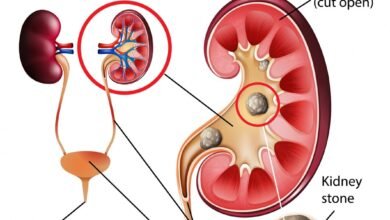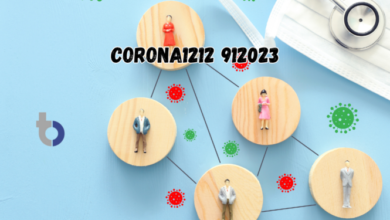doctorhub360.com neurological diseases

Neurological diseases affect millions of people worldwide, disrupting lives, imposing significant challenges, and often raising complex questions for patients and caregivers. Thanks to platforms like DoctorHub360.com neurological diseases understanding and managing neurological disorders has become more accessible than ever. This blog explores the fundamental aspects of neurological diseases, common disorders, diagnosis and treatments, practical coping strategies, and the promising innovations shaping the future of neurology.
Introduction to Neurological Diseases
The nervous system is the command center for the human body, controlling everything from muscle movement to cognitive function. It comprises two key parts:
- The Central Nervous System (CNS), which includes the brain and spinal cord.
- The Peripheral Nervous System (PNS), which connects the CNS to the rest of the body.
Neurological diseases occur when there are dysfunctions or disturbances in the nervous system. These conditions can result from various factors, including genetics, trauma, infections, or lifestyle choices. Understanding these diseases is essential for their early diagnosis, effective management, and improved quality of life for those affected.
Common Neurological Disorders
Neurological conditions vary in symptoms, causes, and effects. The following are some of the most common disorders and their key characteristics:
1. Alzheimer’s Disease
- Description: A progressive neurodegenerative disorder that primarily affects memory and cognitive functions.
- Symptoms: Memory loss, confusion, difficulty speaking or focusing, and personality changes.
- Causes/Risk Factors: Aging, genetic predisposition, and lifestyle factors such as sedentary habits and poor diet.
- Key Insight: Early diagnosis and interventions, including medications and lifestyle adjustments, can slow the progression of symptoms.
2. Epilepsy
- Description: A neurological disorder characterized by recurrent seizures caused by excessive electrical activity in the brain.
- Symptoms: Seizures, temporary confusion, uncontrollable jerking of limbs, and loss of consciousness.
- Causes/Risk Factors: Head injuries, genetic tendencies, and prenatal brain abnormalities.
- Key Insight: With proper medication and treatment, up to 70% of individuals with epilepsy can live seizure-free.
3. Parkinson’s Disease
- Description: A progressive disorder affecting movement, caused by a loss of dopamine-producing brain cells.
- Symptoms: Tremors, rigidity, bradykinesia (slowed movements), and impaired balance.
- Causes/Risk Factors: Age (over 60), genetic factors, and potential environmental triggers.
- Key Insight: Although there is no cure, symptoms can be managed with medication, physical therapy, and surgery such as deep brain stimulation.
Diagnosis and Treatment of Neurological Disorders
Accurate diagnosis is the foundation for effective treatment and management. Here’s a look at how healthcare professionals diagnose and treat neurological diseases:
Diagnosis
- Clinical Evaluation: Assessment of symptoms, medical history, and physical examination.
- Imaging Tests:
- MRI and CT scans to visualize brain abnormalities.
- PET scans for detecting chemical changes in the brain.
- Electrophysiological Tests:
- EEG (electroencephalogram) for assessing electrical activity in the brain (commonly used for epilepsy).
- Laboratory Tests:
- Blood tests to detect infections or genetic markers.
Treatment
- Medications:
- Anticonvulsants for epilepsy.
- Dopamine substitutes for Parkinson’s.
- Cognitive enhancers for Alzheimer’s.
- Therapies:
- Physical and occupational therapy for improving mobility and strength.
- Speech therapy to address communication challenges.
- Surgical Options:
- Deep Brain Stimulation (DBS) for Parkinson’s.
- Neurostimulation devices for epilepsy.
Integrating multidisciplinary approaches and patient-specific treatment plans are crucial for achieving the best outcomes.
Living with a Neurological Disease
Adjusting to life with a neurological condition requires resilience and support. Here are some strategies to ease the process:
Coping Strategies for Patients

- Prioritize Health Management: Maintain a routine of medication adherence, regular exercise, and a healthy diet.
- Leverage Technology: Use wearable devices and apps to monitor symptoms and track medication schedules.
- Seek Professional Help: Engage in therapy sessions for emotional and psychological support.
Resources for Caregivers
- Education and Awareness: Learn about the specific neurological condition to understand what to expect and how best to provide care.
- Support Groups: Join local or virtual caregiver groups to share experiences and gain emotional support.
- Respite Care: Utilize senior care programs or respite services to avoid burnout and maintain personal well-being.
Building a Community
Platforms like DoctorHub360.com neurological diseases align patients, caregivers, and healthcare professionals by providing verified resources, forums, and expert insights. They help people connect, share tips, and work together to overcome challenges.
The Future of Neurology
The field of neurology is advancing rapidly, ushering in exciting possibilities for diagnosis and treatment:
Breakthroughs in Research
Innovations in gene therapy, stem cell research, and personalized medicine promise to revolutionize the way we approach neurological diseases. For example:
- Gene therapies are being explored to potentially reverse genetic defects in Alzheimer’s and Parkinson’s.
- Stem cell treatments could repair damaged nerve cells, restoring neurological function.
Role of Telemedicine
Telemedicine has become a vital tool for managing neurological disorders, especially for those in remote locations. It allows:
- Regular consultations with neurologists through video calls.
- Quick access to expert opinions on imaging and test results.
- Remote monitoring of vital signs and symptoms.
Taking the Next Step with DoctorHub360
Neurological diseases may pose serious challenges, but understanding them is the first step toward prevention and effective management. Whether you’re navigating these conditions as a patient, a caregiver, or a healthcare professional, the resources at DoctorHub360.com neurological diseases are designed to empower you with expert-verified information, support networks, and tools.




